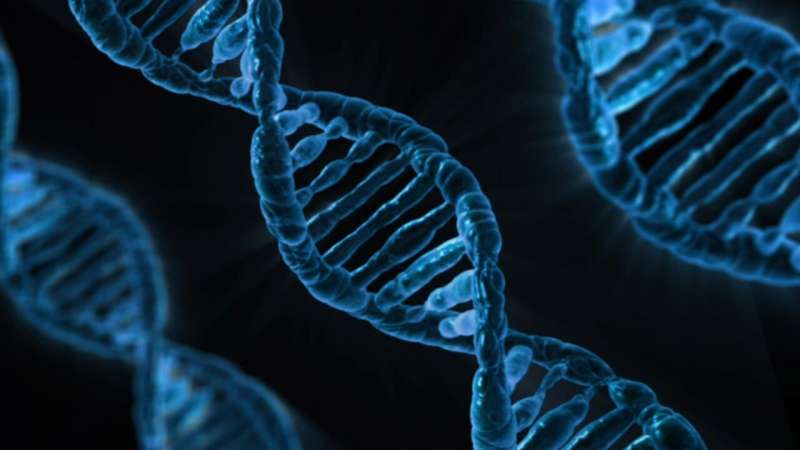This article has been reviewed according to Science X's editorial process and policies. Editors have highlighted the following attributes while ensuring the content's credibility:
fact-checked
peer-reviewed publication
trusted source
proofread
Genetic breast cancer study alters guidelines in Sweden

BRCA1 and BRCA2 are well-known breast cancer genes associated with a significantly increased risk of hereditary breast and ovarian cancer. However, there are an additional 11 genes associated with elevated risk for these types of cancer.
A multi-year Swedish study now reveals that the proportion of women with genetically confirmed hereditary breast cancer doubled by including all genes in the screening test. The findings are published in the journal BMC Cancer.
In a Swedish research study including patients between 2012 and 2018, all cancer genetic clinics in Sweden participated. A total of 4,759 individuals underwent comprehensive genetic analyses, with 4,622 women having breast cancer and/or ovarian cancer. This represents around 85% of all women in Sweden who were investigated for suspected hereditary breast cancer (BRCA1 and BRCA2) during these years. One aim of the study was to determine how common it is for a gene other than BRCA1 or BRCA2 to cause the disease.
"The analyses conducted were more extensive than clinical routine, and we examined 13 genes known to be associated with elevated risk of breast and ovarian cancer to see how common these genetic changes are in a Swedish population. The number of women who received a genetic explanation for their breast cancer doubled through the new inclusive screening technique," says Hans Ehrencrona, who led the study and is a researcher and associate professor in clinical genetics at Lund University and senior physician at Skåne University hospital.
Among the 13 studied genes, there are several genetic variations that are extremely rare, and researchers question the usefulness of including these in routine genetic tests. At the same time, the technology of Next-Generation Sequencing (NGS) makes it easy to conduct broad analyses and include well-known genes where there is good knowledge about the risk of cancer associated with genetic variations.
"Sequencing is a technique used specifically to identify genetic variations, in order to prevent illness and tailor treatments," says Anna Öfverholm, a Ph.D. at Sahlgrenska Academy, University of Gothenburg, and senior physician at Sahlgrenska Hospital, and the first author of the study.
The study provides knowledge that can be used in individual risk assessment, preventive measures, and treatment strategies for breast cancer patients.
Already, the study has had implications for genetic investigations of patients, and criteria for who should be offered genetic testing have changed in the Swedish national guidelines for breast cancer. They have become more inclusive in terms of genetic testing and now offer, for example, all women with triple-negative breast cancer, regardless of age, the opportunity to be tested.
"In our study, just over 27% of women with triple-negative breast cancer had a detectable genetic abnormality, and in this group, we often see genetic variants that can lead to targeted treatment," concludes Hans Ehrencrona.
More information: Anna Öfverholm et al, Extended genetic analysis and tumor characteristics in over 4600 women with suspected hereditary breast and ovarian cancer, BMC Cancer (2023). DOI: 10.1186/s12885-023-11229-y


















